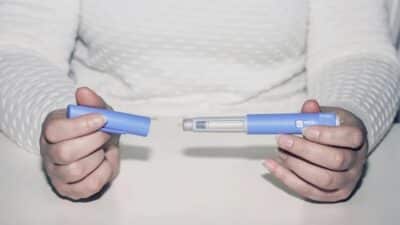Welcome to our comprehensive guide on erectile dysfunction (ED) prevalence across different age groups. As an expert in the field, I aim to shed light on the factors contributing to ED, strategies for prevention, and viable solutions for those affected.
The Age Factor in Erectile Dysfunction
Erectile dysfunction is a condition that can affect men of all ages, but its prevalence tends to increase with age. Various studies have shown a clear correlation between age and the likelihood of experiencing ED. Let’s delve into the age-specific prevalence rates:
1. ED in Younger Men (Under 40)
Contrary to common belief, ED is not exclusive to older individuals. In recent years, there has been a noticeable rise in the incidence of ED among younger men. Lifestyle factors such as stress, unhealthy diet, and lack of physical activity contribute significantly to this trend.
Younger men often face ED due to the pressures of modern life, including academic stress, work-related anxiety, and relationship challenges. These factors can contribute to hormonal imbalances and psychological stress, impacting sexual performance. It’s crucial for individuals in this age group to prioritize mental well-being and adopt healthy lifestyle choices to mitigate the risk of developing ED.
2. Middle-Aged Men (40-60)
The middle-aged demographic often experiences a gradual increase in ED prevalence. This can be attributed to a combination of age-related physiological changes, underlying health conditions, and the cumulative effects of lifestyle choices made over the years.
For men in their 40s and 50s, ED may be linked to conditions such as hypertension, diabetes, and cardiovascular issues. Hormonal fluctuations during this phase of life can also play a role. Engaging in regular health check-ups, maintaining a balanced diet, and staying physically active become paramount in preventing and managing ED in this age group.
3. Seniors (60 and Above)
As men enter their senior years, the likelihood of ED further escalates. Aging is associated with a natural decline in testosterone levels, reduced blood flow, and an increased incidence of chronic illnesses, all of which contribute to the higher prevalence of ED in this age group.
Seniors facing ED often deal with multiple health concerns simultaneously. Addressing ED in this age group requires a holistic approach, involving medical interventions, lifestyle adjustments, and emotional support. Consulting healthcare professionals and fostering open communication with partners become essential components of maintaining a satisfying and fulfilling sex life in the senior years.
Understanding the Reasons Behind Erectile Dysfunction
Several factors contribute to the development of erectile dysfunction, and these factors often intertwine. As an expert in the field, I want to highlight some common causes:
1. Cardiovascular Health
The health of your cardiovascular system plays a crucial role in erectile function. Conditions such as hypertension and atherosclerosis can impede blood flow to the penis, leading to ED.
It’s essential to prioritize cardiovascular health through regular exercise, a heart-healthy diet, and maintaining a healthy weight. These lifestyle choices not only promote overall well-being but also contribute to better blood circulation, reducing the risk of cardiovascular-related ED.
2. Hormonal Imbalances
Testosterone, the primary male sex hormone, is essential for maintaining sexual function. Hormonal imbalances, often associated with aging, can contribute to erectile problems.
Monitoring and addressing hormonal imbalances through consultation with healthcare professionals can be crucial in managing ED. Hormone replacement therapy may be considered in certain cases to restore hormonal equilibrium and improve sexual function.
3. Psychological Factors
Stress, anxiety, depression, and other psychological factors can have a profound impact on sexual performance. Addressing these issues is crucial for overcoming ED.
Psychological factors often require a multi-faceted approach for resolution. Seeking therapy or counseling, practicing stress-management techniques, and fostering open communication with partners can play a pivotal role in addressing the psychological aspects of ED.
4. Lifestyle Choices
Unhealthy lifestyle choices such as smoking, excessive alcohol consumption, and a sedentary lifestyle can contribute to ED. Adopting healthier habits can significantly reduce the risk.
Quitting smoking, moderating alcohol intake, and incorporating regular physical activity into your routine are positive steps towards preventing and managing ED. These lifestyle changes not only benefit sexual health but also contribute to overall well-being.
Solutions for Erectile Dysfunction
For those already grappling with erectile dysfunction, there are effective solutions available. Consulting with a healthcare professional is crucial to determine the most suitable approach. Here are some common solutions:
1. Medications
Prescription medications like Viagra, Cialis, and Levitra are commonly used to treat ED by enhancing blood flow to the penis. However, they should be used under medical supervision.
Medications for ED work by increasing the blood flow to the penis, promoting a firm and sustained erection. It’s essential for individuals to consult with a healthcare professional to determine the right medication and dosage based on their specific health conditions and needs.
2. Lifestyle Changes
Implementing healthy lifestyle changes can have a positive impact on ED. This includes maintaining a healthy weight, exercising regularly, and adopting a balanced diet.
Regular physical activity not only contributes to overall health but also improves blood circulation, which is vital for erectile function. Adopting a diet rich in fruits, vegetables, whole grains, and lean proteins can further enhance the benefits of lifestyle changes in managing and preventing ED.
3. Psychological Counseling
Counseling or therapy can be beneficial for individuals dealing with ED of psychological origin. Addressing underlying emotional factors can lead to significant improvement.
Psychological counseling aims to explore and address the emotional factors contributing to ED, such as stress, anxiety, or relationship issues. In many cases, a combination of psychological counseling and other treatment modalities proves to be highly effective in restoring sexual function.
4. Surgical Interventions
In severe cases, surgical interventions such as penile implants may be considered. However, these are typically reserved for cases where other treatments have not been successful.
Surgical interventions are considered when other treatment options are not viable or have not provided the desired results. Penile implants, while an invasive option, can offer a lasting solution for individuals with severe and persistent ED. The decision to undergo surgery should be thoroughly discussed with a healthcare professional, weighing the potential risks and benefits.
Conclusion
In conclusion, understanding the prevalence of erectile dysfunction across different age groups is essential for both awareness and proactive measures. As an expert in the field, I encourage individuals to prioritize their overall health, seek professional guidance when needed, and explore the range of available solutions for a fulfilling and satisfying life.





